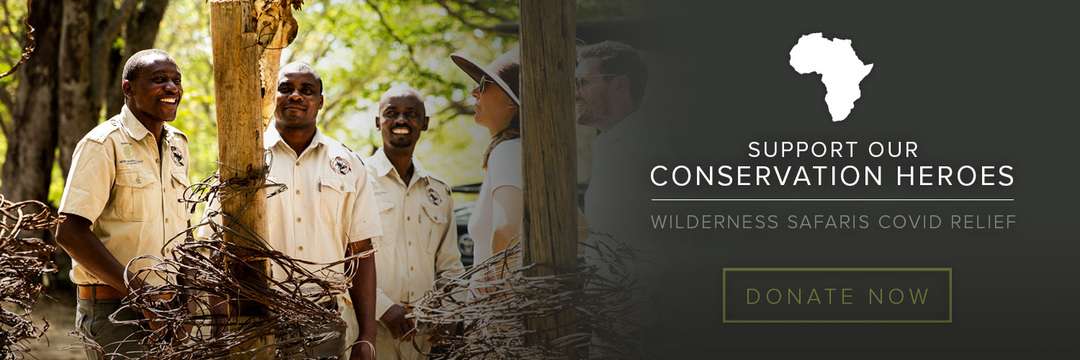22 September is World Rhino day, and to celebrate this Critically Endangered animal, we would like to share some of the amazing efforts being done at Wilderness Safaris Desert Rhino Camp. The Namibian north-west is home to Africa’s most indisputably important population of black rhino to have survived outside a formally-protected park.
Desert Rhino Camp is situated within the 580 000-hectare (1.4 million-acre) Palmwag Concession in Namibia’s remote and rugged north-west Kunene Region. It was here, in 2003 (when the camp opened) that Wilderness Safaris joined forces with Save the Rhino Trust Namibia (SRT) and local conservancies, Torra, Sesfontein and Anabeb, to ensure the survival of Africa’s most threatened wildlife species.
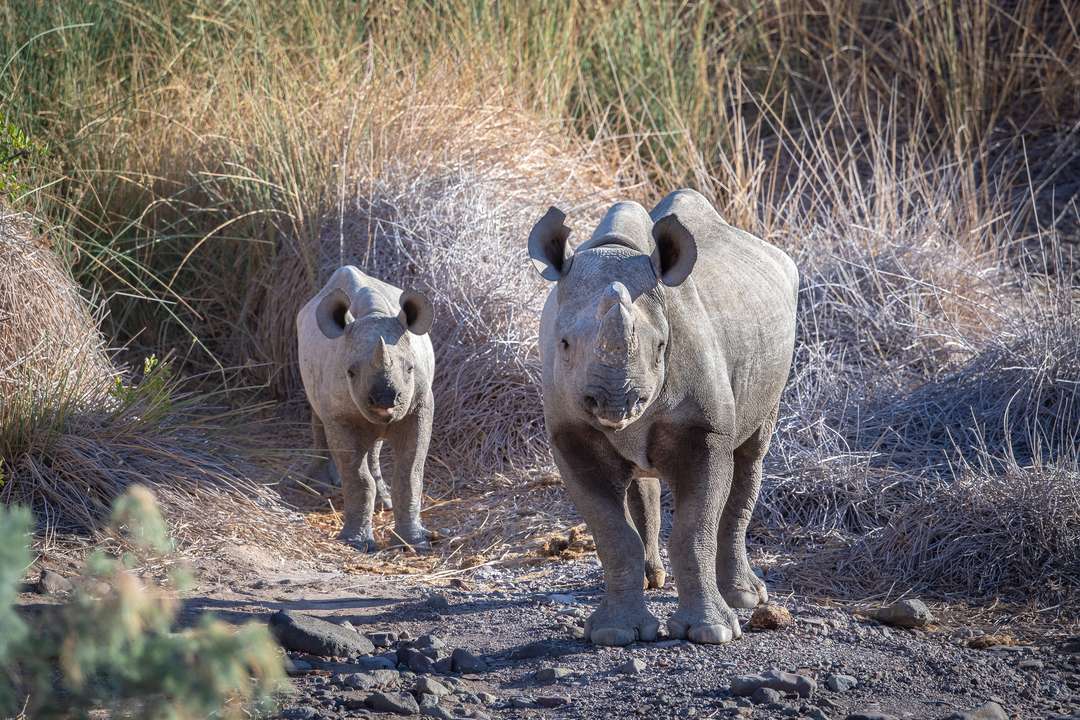
Desert Rhino Camp works in partnership with Save the Rhino Trust Namibia, as well as local communities and the Palmwag Conservancy, to develop responsible ecotourism initiatives and thereby support wildlife conservation in the area
Save the Rhino Trust
SRT is responsible for leading all rhino tracking activities, enforcing viewing protocols, and ensuring rhino monitoring and threat data is collected, processed and secured. In the early 1980s, prolonged drought and uncontrolled poaching took a heavy toll on the country’s desert-adapted wildlife, in particular the black rhino (Diceros bicornis bicornis). In 1982, Save the Rhino Trust was formed to reduce poaching and save this iconic mammal from the brink of extinction. Their approach was different. Instead of increasing costly security and monitoring practices, they provided the poachers a more secure livelihood – as wildlife guards!
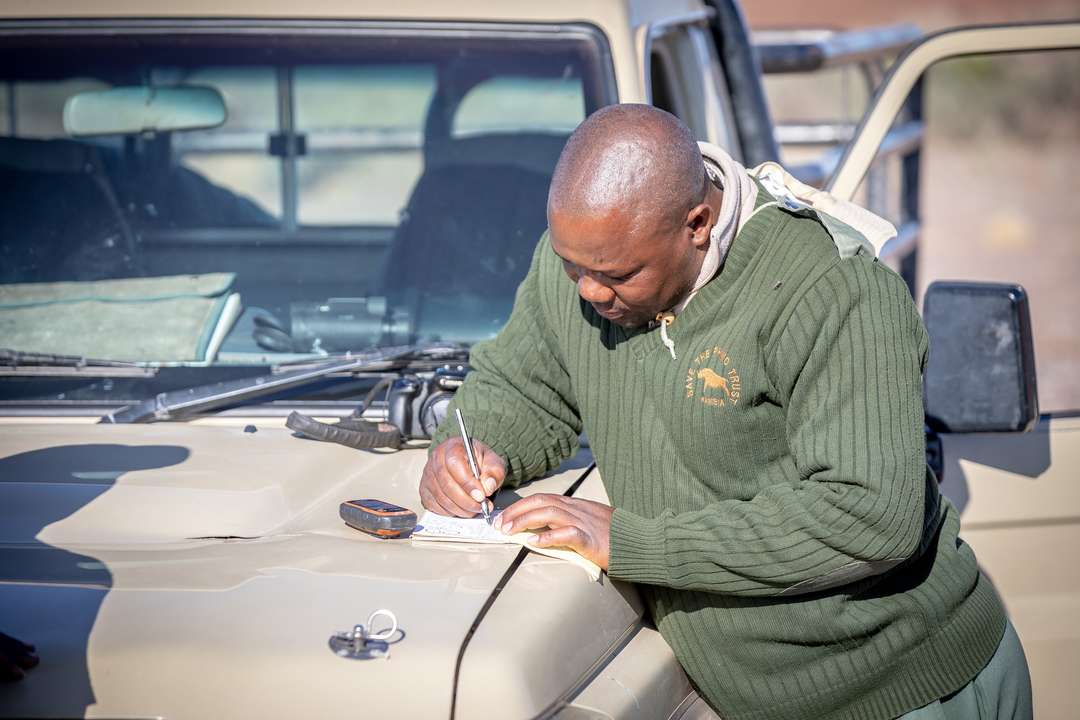
Community conservation in Namibia grew out of the recognition that wildlife has value, and that this value can be unlocked if local communities are empowered to manage and utilise these resources themselves. Under the Rhino Ranger Programme, people in the communities are trained to monitor and help protect the rhinos.
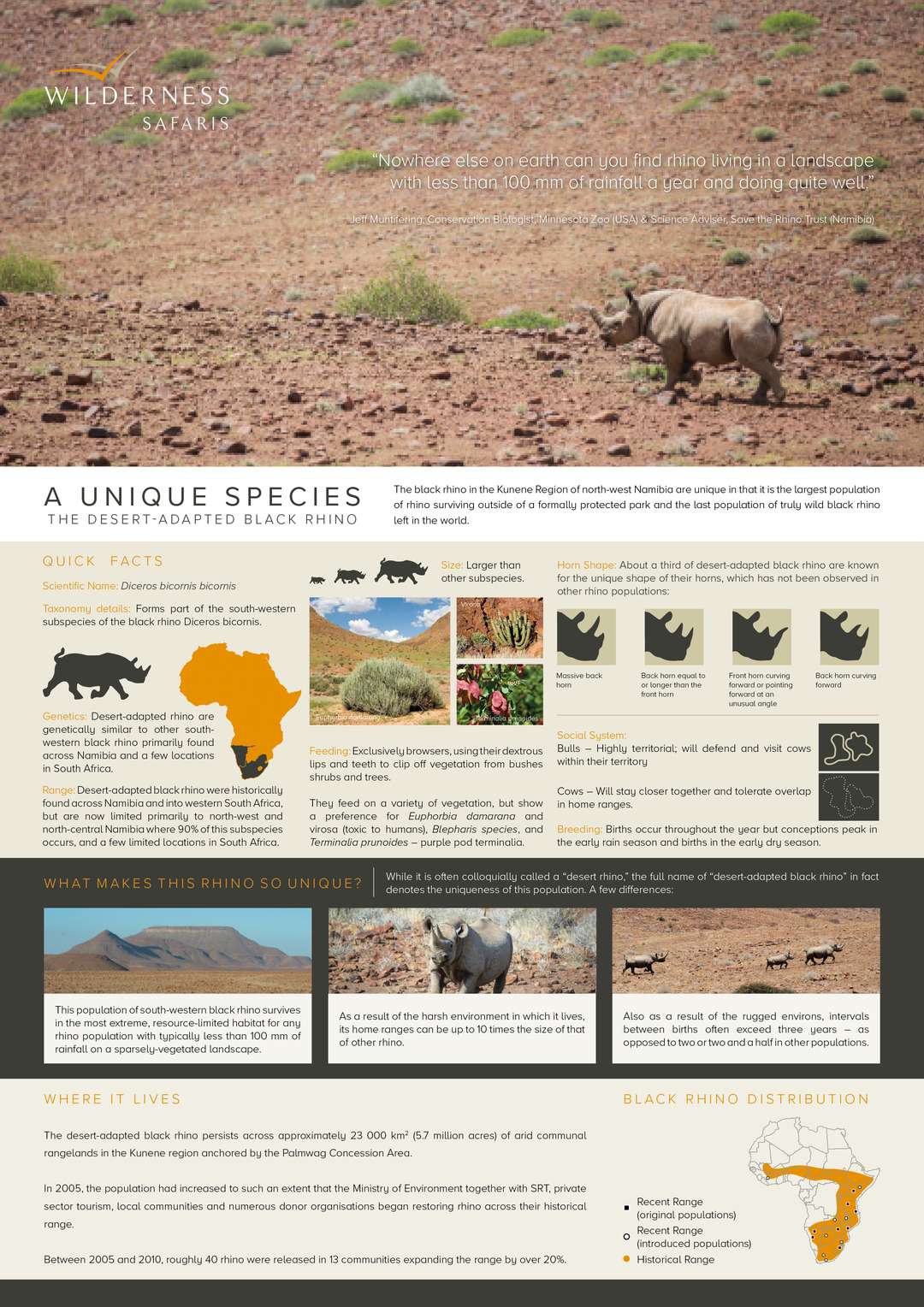
Black rhinos are Critically Endangered and it is estimated that there are fewer than 5 630 left in the wild.
Partnership with Wilderness Safaris
Together with our partners we have managed to dramatically and sustainably increase the range of desert-adapted black rhino in the north-west, as well as the overall population, as a result of more aggressive recruitment rates. Rigorous scientific monitoring of tourism activities proves that there is no behavioural or other negative impact on this black rhino population.
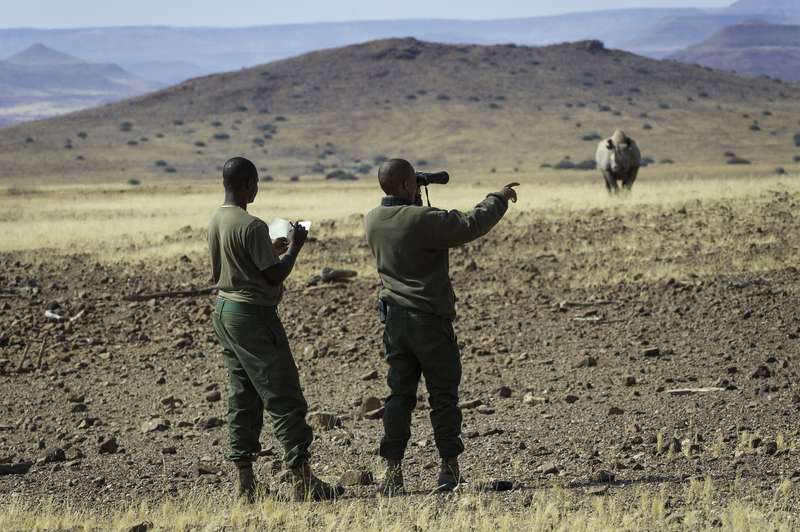
Desert Rhino Camp serves as a base for one of the SRT’s tracking and monitoring teams, Wilderness Safaris pays for the team’s running costs through levies from the camp which directly fund rhino monitoring and other rhino conservation activities. Thus, every guest of Desert Rhino Camp actively and financially supports rhino conservation. Guests at Desert Rhino Camp have the opportunity to not only track rhino on foot or by vehicle with SRT trackers, but also playing a meaningful role in the ongoing preservation of this Critically Endangered species.
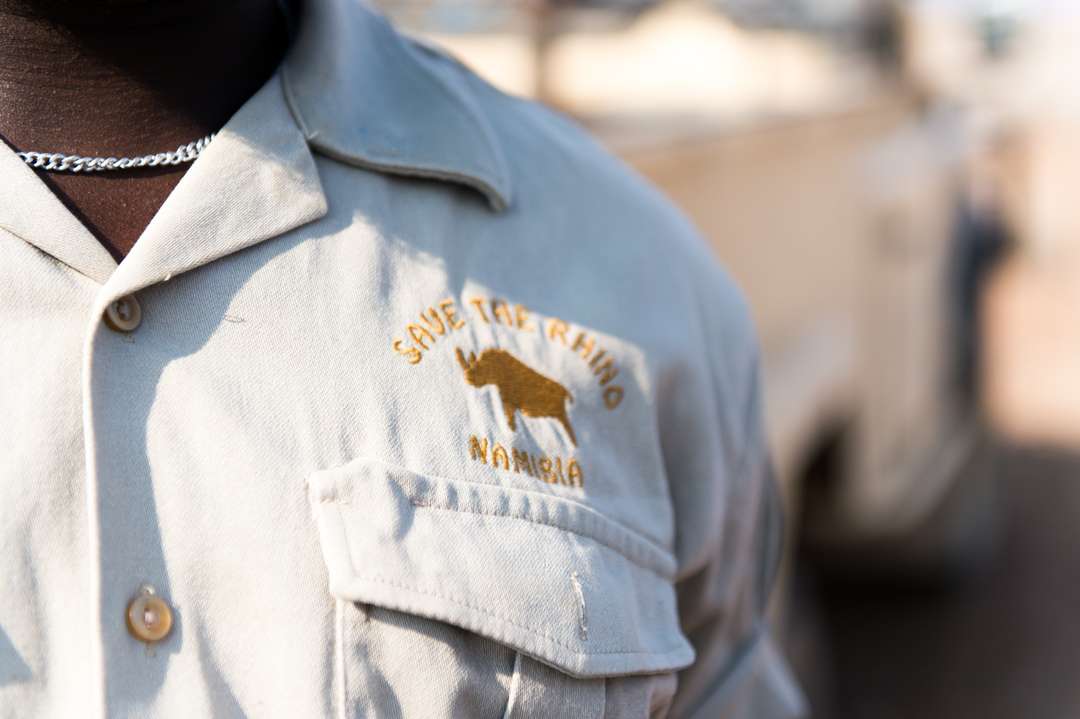
Desert Rhino Camp is a symbiotic partnership with SRT that operates as a rhino monitoring post in what would otherwise be an unpatrolled area
Partnership timeline infographic -
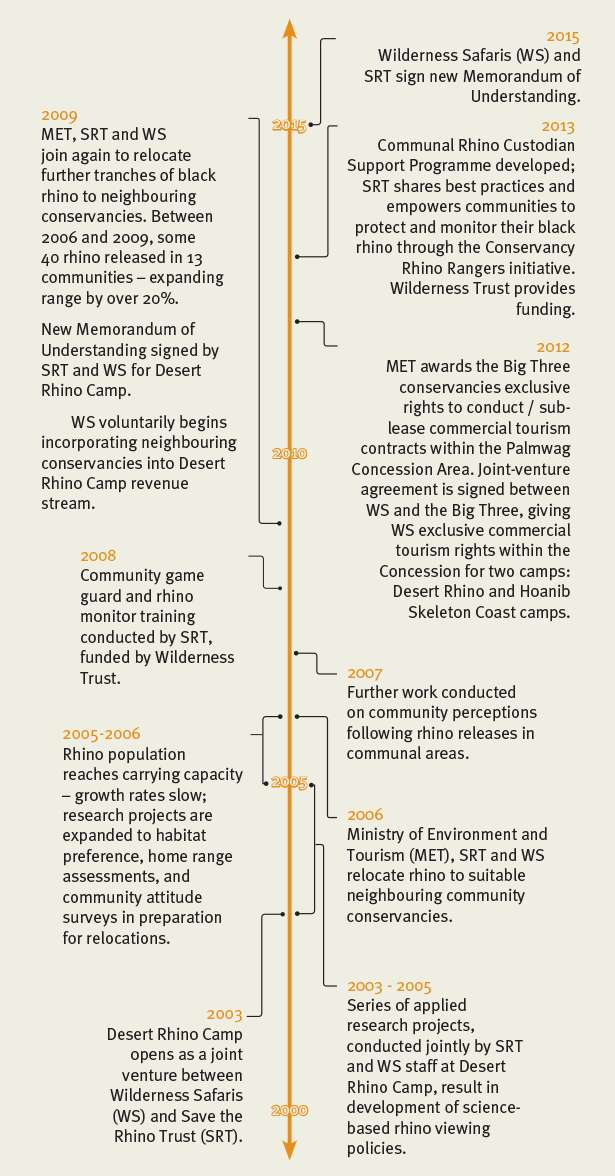
Desert Rhino Camp
In a wide valley sometimes flush with grass, Desert Rhino Camp lies in the enormous Palmwag Concession, where trackers patrol and protect one of Africa’s largest free-ranging populations of Critically Endangered desert-adapted black rhino. Other activities include exploring the area on full-day outings, nature drives or walks. The camp has eight comfortable Meru-style tents and a main area that overlooks a sweeping plain dotted with Namibia’s national plant, the welwitschia. The campfire inspires storytelling under Namibia’s star-studded skies.
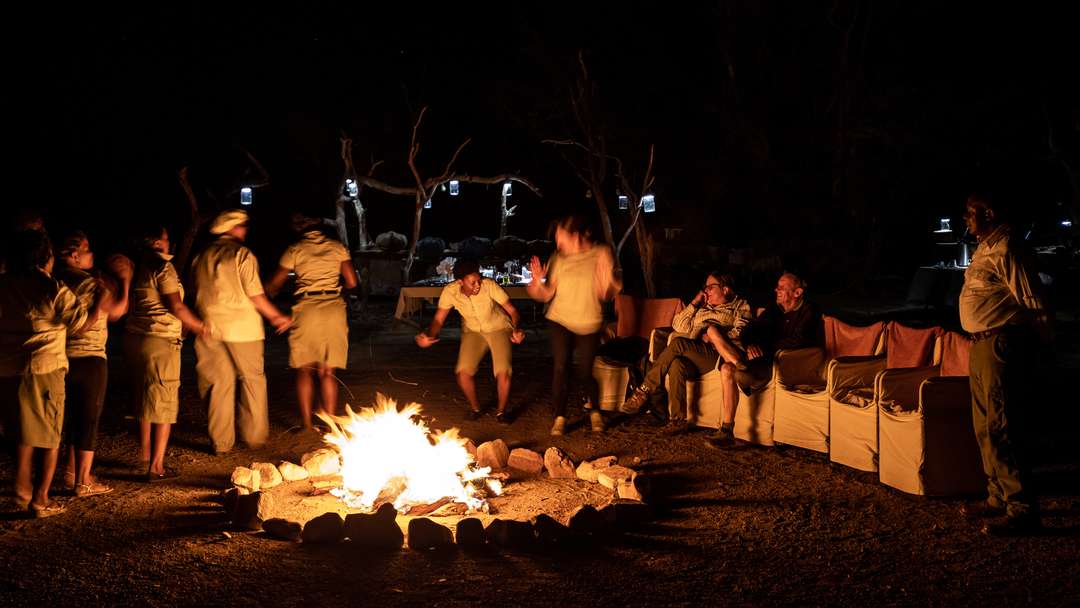






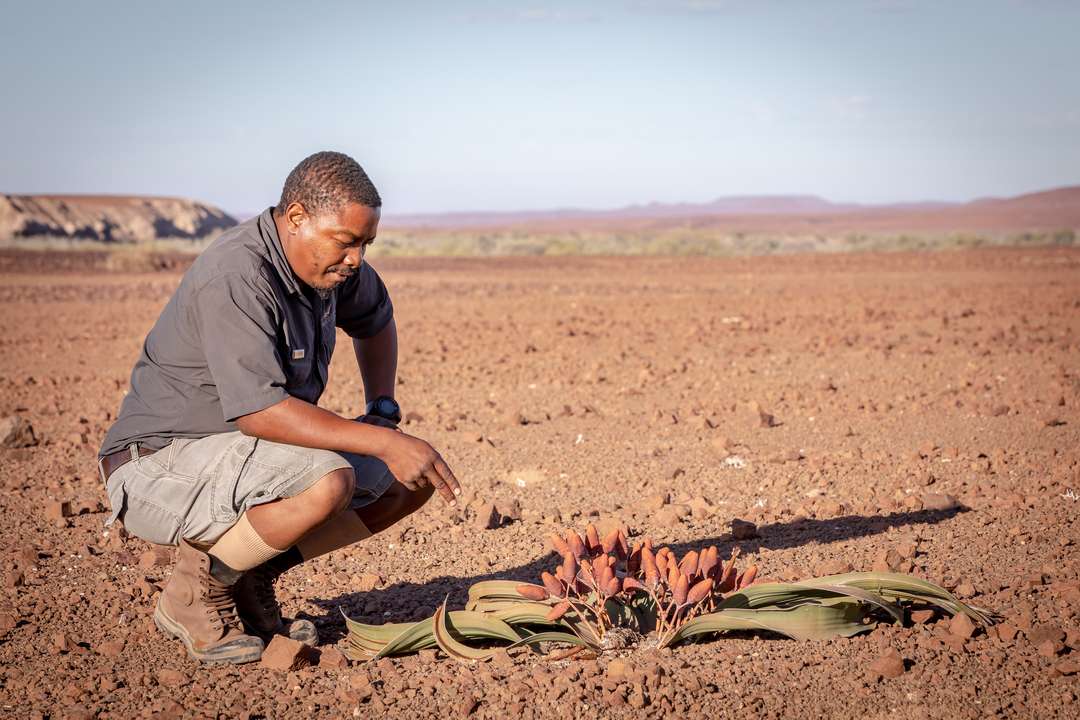
Learn more about the lesser-known flora and fauna that survive in this harsh environment. Adaptation is a necessity for desert wildlife and walking through the desert environment offers unique insights on this phenomenon.
Aside from the desert-adapted black rhino to be found in the area, Palmwag Concession's freshwater springs also support healthy populations of desert-adapted elephant, Hartmann's mountain zebra, giraffe, gemsbok, springbok, kudu and occasionally even predators. Birdlife is prolific and diverse, with most of Namibia's endemics present. And not to be forgotten recent sightings of hyaena in and around camp. Read more about “Champ” here.
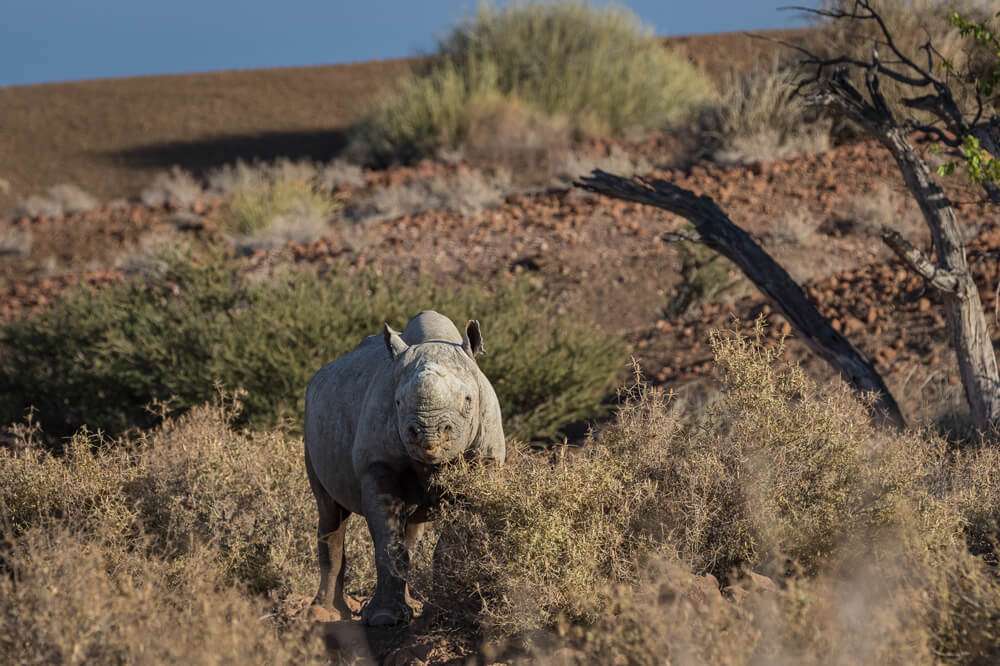
Black Rhino Facts
• Scientific Name: Diceros bicornis bicornis.
• Taxonomy: Forms part of the south-western subspecies of the black rhino Diceros bicornis.
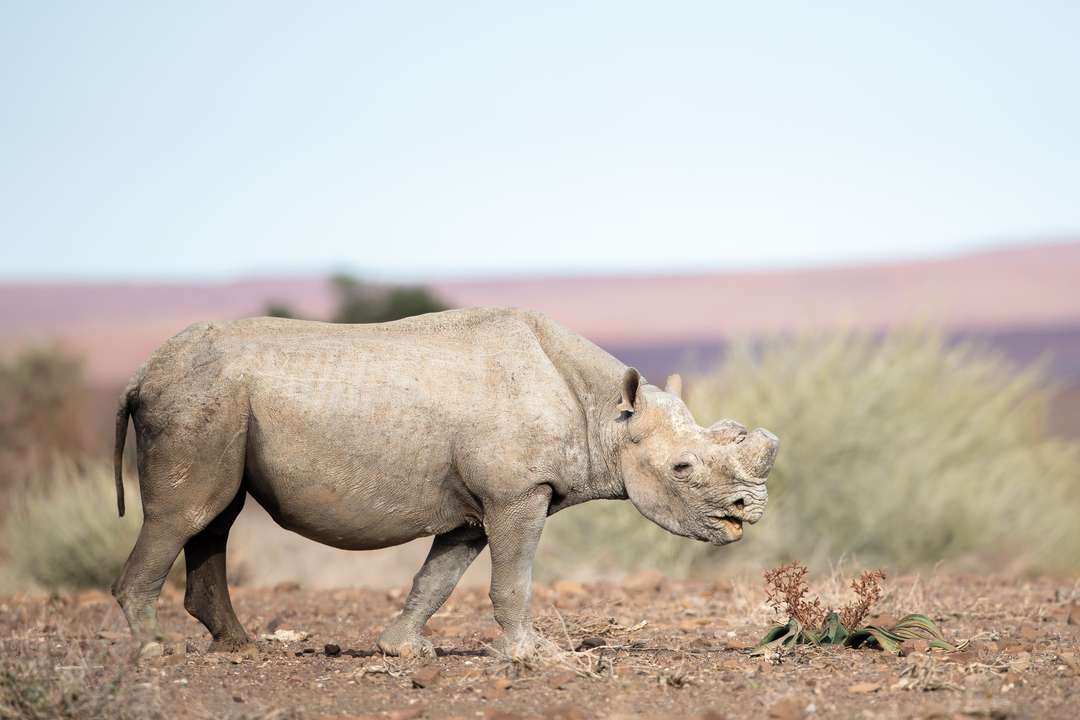
• Range: Desert-adapted black rhino were historically found across Namibia and into western South Africa. Today, 90% occur in north-west Namibia, with the remainder limited primarily to a few locations in South Africa.
• Size: Larger than the two other existing subspecies D.b. minor and D.B. michaeli.
• Rhinoceros means ‘nose horn’ and refers to the horn that appears to protrude from the rhino’s nose.
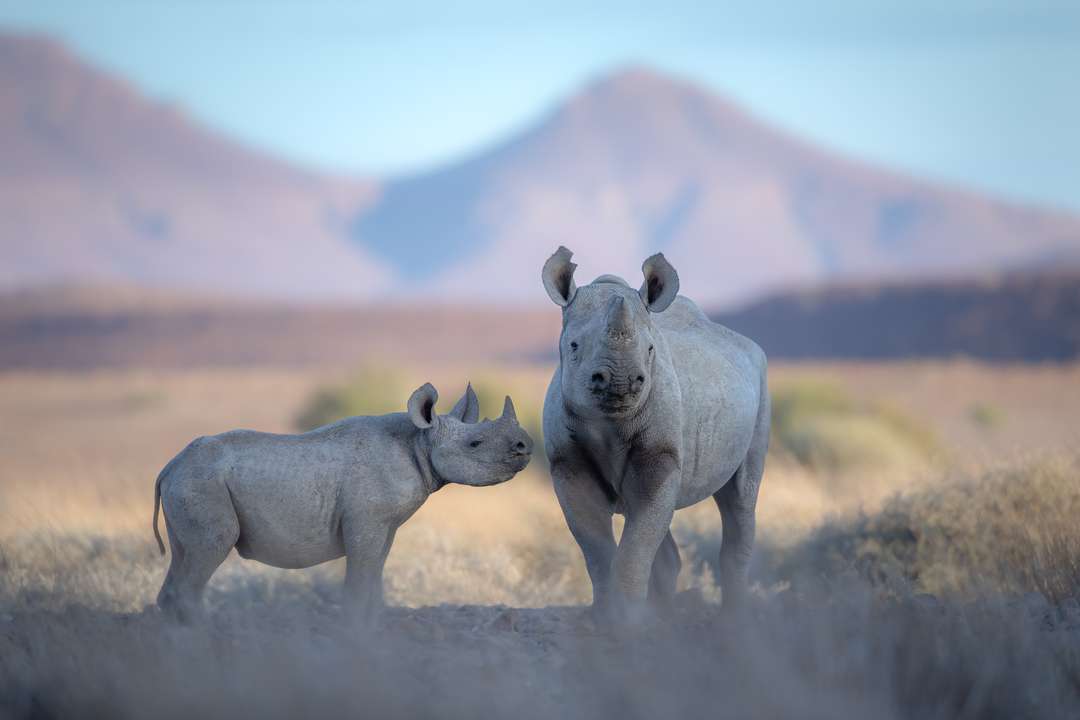
• Black rhinos are not black. The species probably derives its name as a distinction from the white rhino and/or from the dark-coloured local soil that covers its skin after wallowing in mud .
• Relatively broad snout with a prehensile (or hooked) lip, adapted for grasping branches and leaves.
• Rhinos can run faster than the fastest human sprinter, and can cover 100 metres in less than 8 seconds.
• Rhinos do not have very good eyesight but can detect a human figure from roughly 100 metres.
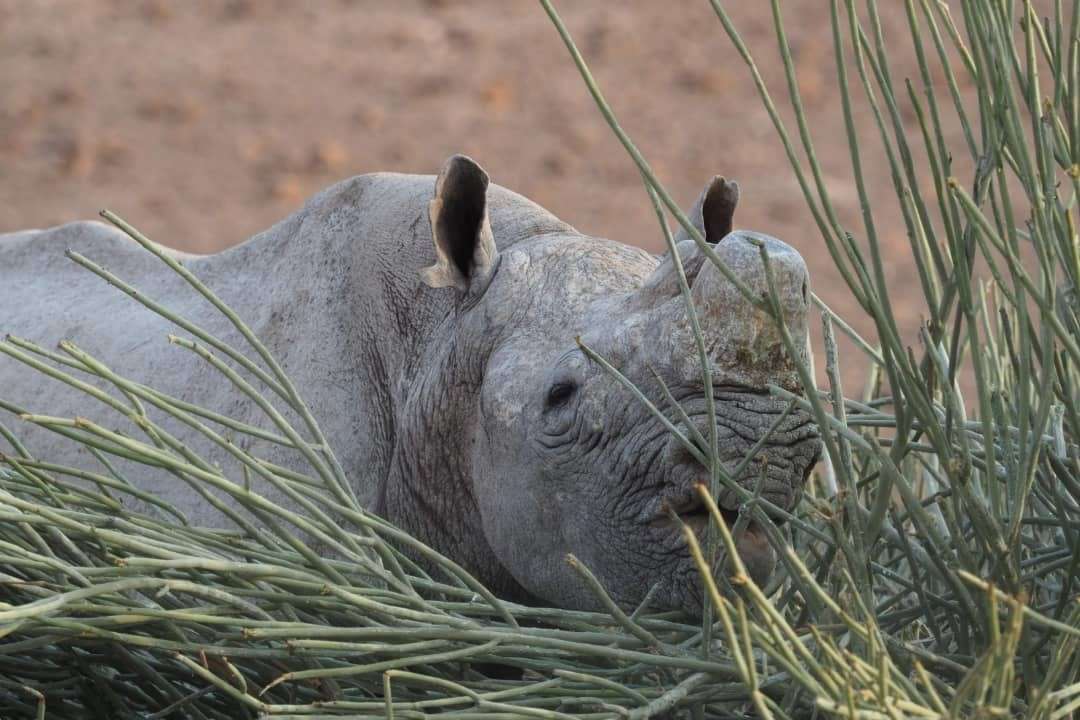
How You Can Make a Difference
The impact of COVID-19 in Africa has been profound – particularly on wildlife conservation and rural communities dependent on tourism. We feel an immense sense of responsibility to ensure that our people and our wildlife continue to benefit from our business, despite the current challenges. Please join us to support our Conservation Heroes
Together we are stronger, and together, we can continue to change lives. It only costs USD50 to feed a family for a month. Or USD5 000 to cover the monthly operations of an anti-poaching team. Every single contribution, no matter how big or small, makes a significant difference.
To learn more about Wilderness Safaris COVID relief efforts, click here.

Let’s plan your next journey
Ready?
When we say we’re there every step of the way, we mean it, literally. From planning the perfect circuit, to private inter-camp transfers on Wilderness Air, and easing you through Customs. We’re with you on the ground, at your side, 24-7, from start to finish. Ready to take the road less travelled? Contact our Travel Designers to plan an unforgettable journey.
